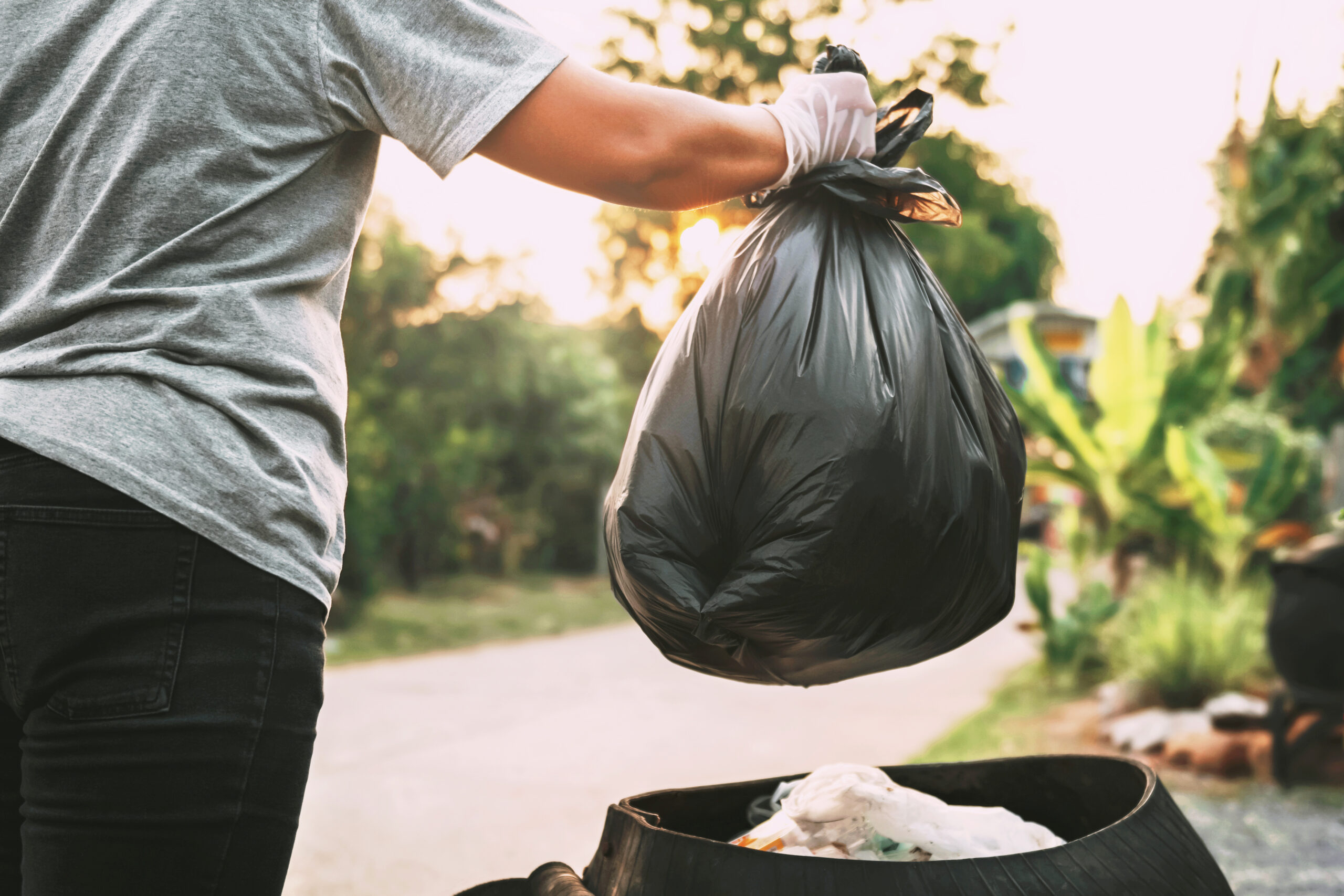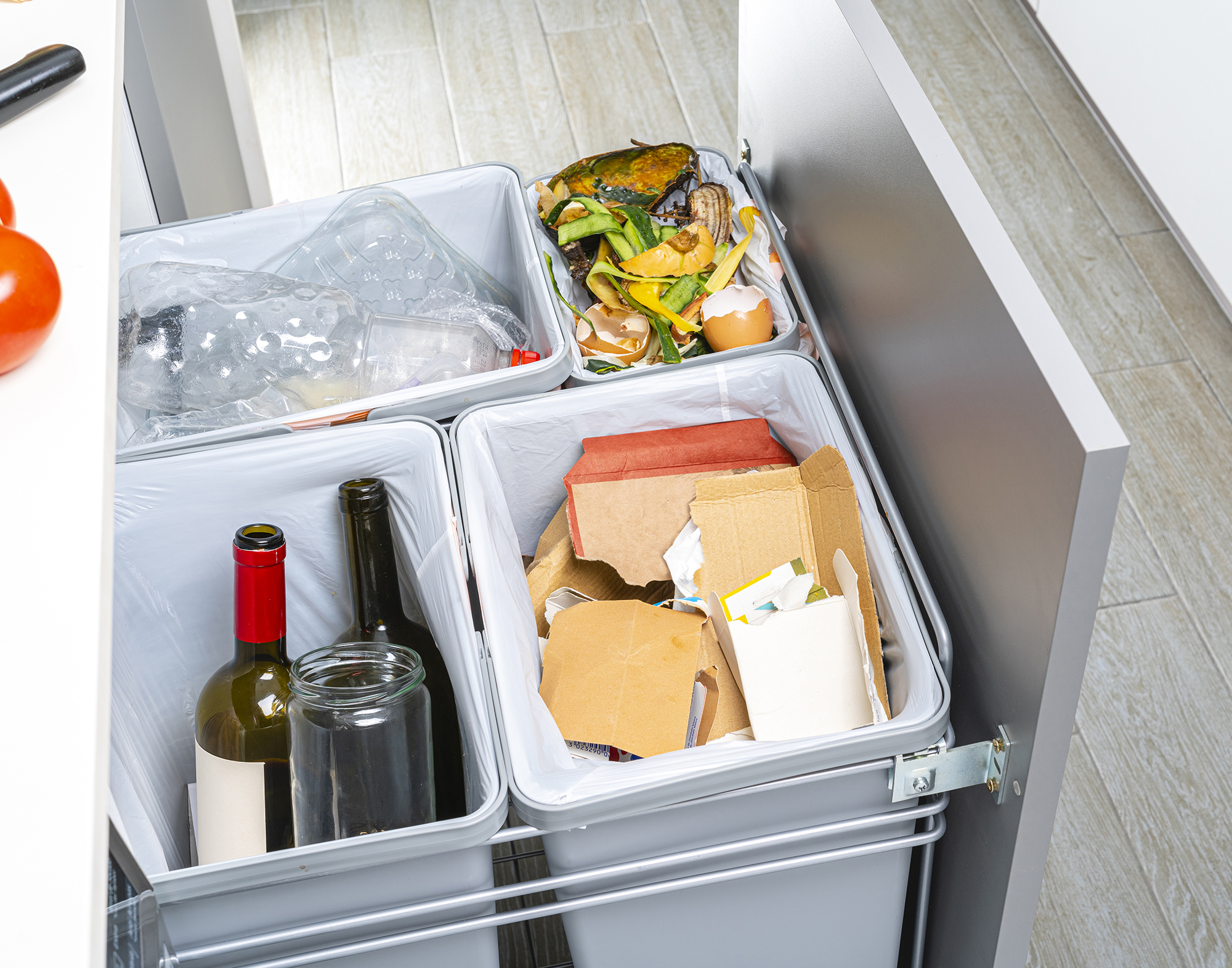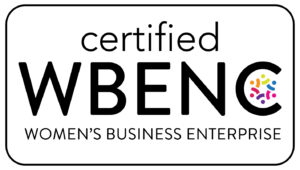 Is your trash really “trash”? On average, every American produces 1,609 pounds of garbage every year. About 75% of what we throw away could be recycled—yet our recycling rate is only 32%, according to the EPA.
Is your trash really “trash”? On average, every American produces 1,609 pounds of garbage every year. About 75% of what we throw away could be recycled—yet our recycling rate is only 32%, according to the EPA.
To keep things more sustainable, each of us should look at what we’re throwing away and determine if it could be recycled, composted, or avoided instead. First step: A trash bin audit. You call the IRS, and they go through your trash.
Just kidding. You go through your garbage to understand what you’re throwing away and see if more of it could be recycled or composted. For materials that can’t be recycled, a trash bin audit can help you think about alternatives that could be reused and not thrown away.
Here are tips on conducting a trash bin audit, from Plastic Free July, an organization dedicated to eliminating the use of single-use plastics:
- Pick a day not long after your normal trash pickup, so you don’t have to rummage through a mound of week-long waste.
- Find a location that is sheltered, with good air flow, and easy to clean.
- Spread a tarp.
- Draw a table to keep a record of the waste you find. This could be as simple as two columns: type of waste and weight/volume. Note the date.
- Put on a pair of gloves, preferable washable, to handle the trash.
- Start with one type of trash and put it all on the tarp—for example, aluminum cans.
- Separate the trash into piles: batteries, paper, food, plastic bottles, plastic cutlery, soft plastic, cans, cardboard, and glass.
- Estimate the volume or percentage of waste in each pile and write this in your table. If you have a scale, weigh the waste.
Now use the information from your trash bin audit to see if you can reduce your waste.
 For example, all those glass and cardboard materials? 100% recyclable.
For example, all those glass and cardboard materials? 100% recyclable.- Likewise, recycling that aluminum can your energy drink came in would save enough energy to run a computer for four hours or a TV for two.
- Is there a specialized recycling center near you that could take hard-to-recycle items like, say, those batteries?
- For the materials that can’t be recycled, consider alternatives to cut down on your waste. For example, switch to reusable straws and food containers instead of plastic from restaurants.
You can also track your food waste. Use a bag or box to keep it separate for the week you’re doing the audit. Keep it in the fridge if you have perishable items or don’t have counter space.
It’s good to set SMART (Specific, Measurable, Relevant, Time-based) goals to reduce the items found in your trash bin audit. Check your progress by conducting another audit in six months or a year.
Oh, and one more thing: Don’t forget to dump all the stuff on the tarp that can’t be recycled or composted back in the trash bin.

